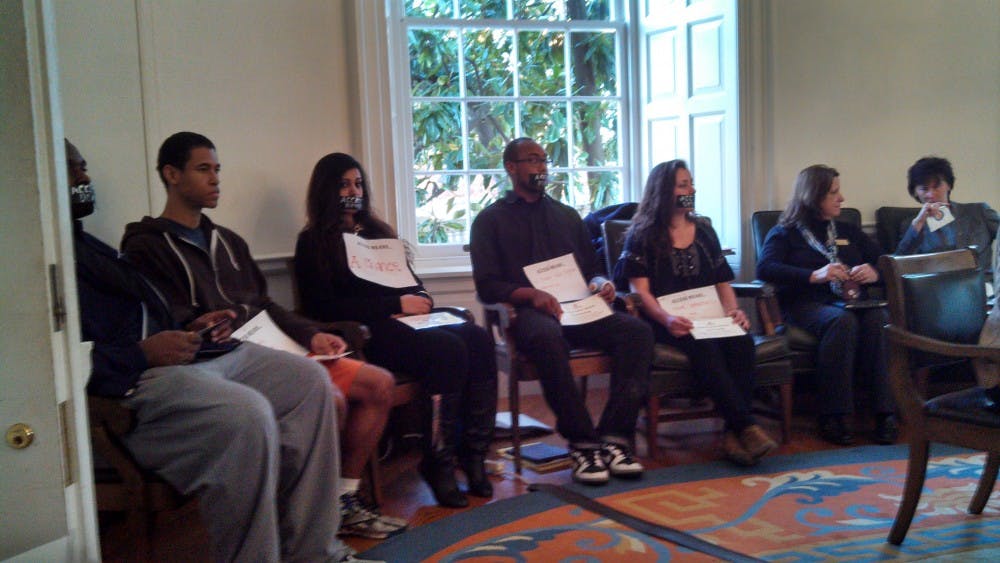Students gathered on the Rotunda steps Friday during the November Board of Visitors meeting to protest recent changes to AccessUVa, the University’s financial aid program. Participants dressed in black and wore duct tape over their mouth’s with the words “Access Denied” written on it.
During the summer, the Board voted to require all students receiving aid from AccessUVa to take out loans, regardless of income level. Before the changes, students from the lowest income brackets could receive all-grant aid from the program, but now these students must take out federally subsidized loans capped at four-year totals of $14,000 for in-state students and $28,000 for out-of-state students.
Students held signs conveying what AccessUVa meant to them, with messages such as “equal opportunity for equal efforts,” “working together,” “being the first person in my family to graduate college,” and “a diverse community.” After the protest, the signs were taped to the statue of Homer on the Lawn.
Third-year College student Katy Hutto, co-founder of event co-organizer United for Undergraduate Socioeconomic Diversity at the University, expressed frustration at the lack of response the group has received from the University.
“So far, I do not think that we have been properly represented,” she said. “We wanted to make a powerful demonstration at the protest and show that we aren’t going anywhere.”
![]()
Changes to AccessUVa not only threaten low-income students, but also reflect poorly on the University’s priorities, said fourth-year College student Hajar Ahmed, vice president of the Multicultural Greek Council, another organizer of the event.
“AccessUVa’s costs are only a tiny percentage of the University’s overall budget,” Ahmed said. “The main issue is that we are not a priority to [the] administration… We are calling on the board to reorganize their priorities.”
At one point during the protest, students entered the Board Room, standing silently for Board members to see.
Fourth-year College student Elizabeth Bickley said that she thought the protest went well.
“We had solidarity and conveyed our message to people who may have not heard it,” Bickley said. “Our signs really registered with people.”







